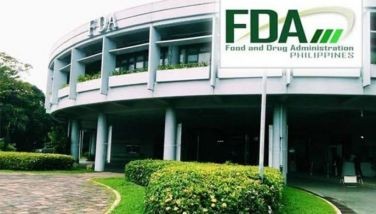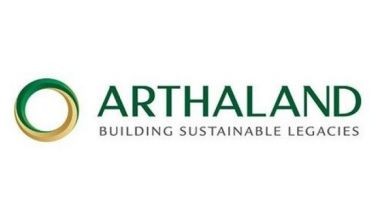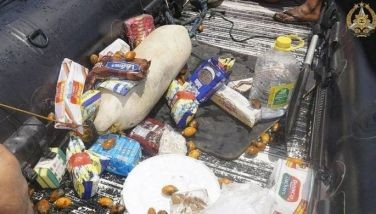The Family and Drug Addiction
CEBU, Philippines - Drug dependency is a disease that affects the mind, emotion, body, and soul of the addict. A drug dependent has had physical, emotional, mental, and/or spiritual problems as a result of their drug use. Think about how these problems have affected their families. Addiction affects the family because the family interacts with the addict. As the addict becomes more dependent on drugs, the family puts more energy in coping. Instead of focusing on their own lives, they put much time feeling and worry on the addict and his addiction. They anticipate trouble, worry about their whereabouts, walk on eggshells at home, believed the addicts promises of stopping, and made excuses when their expectations where not met. Family members of addicts experience intense feelings, including anger, fear, sadness, hope, denial, and depression
Drug addiction is a family disease. Like most diseases, it contaminates. It affects every member of the family and can be passed on, from one generation to another. The disease is also progressive. The longer the family is exposed to the addiction the more affected (contaminated) they become. It’s also terminal. If untreated many codependents die prematurely or get very sick physically. Codependent related deaths are through suicides, accidents, strokes, heart attacks, etc. Each family experiences addiction differently. Some of the common problems that surface are:
Denial – This is family members minimizing what is happening or refuse to admit to themselves and others that the problem exists. Sometimes they say: “That’s just a phase he/she is going through, he’ll/she’ll outgrow it.”; or “That can never happen to my child, he/she is a very responsible person.” or “That will never happen in my family, we brought our kids up very well.”; or “He would never take drugs, I raised him and I should know.”
Enabling – This is family members covering-up for the addict by making excuses to themselves and others for problems caused by substance dependence such as: paying their debts due to drug abuse; redeeming items they pawned so that they could buy more drugs; making excuses for their absences from work/school, even if they can’t get up from bed because they are hung-over or need to sleep because they were so high/drunk over the weekend that they did not sleep; and even blaming others, such as relatives, friends, classmates for the drug use of their child.
Rigid Patterns – Over time, family members accept drug use as normal, and the problem becomes the center of attention. The family gets caught in on-going destructive patterns of reacting and calming down. This brings about anger and resentments on both sides of the family. The family tends to be very controlling and develops very strict rules that they don’t realize stunts the person from growing up properly, and the addict or drug abuser gets even with the family by taking even more drugs.
Self-deception – Then the family members talk themselves into believing they can help or change the situation by trying just a little bit harder. They fall into the delusion that they can solve the problem themselves, or that they can control or cure the drug addict/drug abuser.
Drug addiction commonly affects the following areas of the lives of the family members: Financial; Legal; Marital; School; Home; Work; Friendship. Then the family members when dealing with the addict feels: Angry; depressed; powerless; confused; betrayed; isolated; ashamed; uneasy; worried; and embarrassed.
Accepting drug addiction as a family disease is often the key to overcoming the shame, guilt and stigma of drug addiction, but it is nearly impossible to do this alone. It is important to realize that others play a part in our achieving a sense of self accepting and taking action to have a better and happier life, likewise improving family relationships.
A lot of research and information are available to help cope with addiction. The family has to also recover, having been affected by the disease, and as a recovering person, the family will no longer become a part of the problem but a part of the solution, to repair and strengthen relationships. Here are some steps to start the process:
1. Get Out of the Denial. Admit that there is a problem and that you don’t have the solution.
2. Remove Doubt. Believe that someone/something else can help you. Believe that there is help for as long as you ask for it and seek it.
3. Let the addict face the consequences of his/her decision to behave the way he/she does just to be able to abuse drugs.
4. Do not be defiant. Surrender to the help that is given to you. Get involved with other family members and talk to them for a better understanding of drug addiction and family issues.
5. Seek help from professionals who are trained at dealing with this problem.
6. Get involved with the recovery process, for it is also your own recovery.
When the drug addict is actively using, he acts out and the family members react. When the addict is in recovery, the family has to learn and know more about the disease of addiction, how it affects the addict and the family as a whole. The best support the family can give the addict is to learn how to stop supporting the addiction and support the recovery process. The family has to learn how to take care of themselves and stop taking care of the addict, letting the addict suffer the consequences for his/her choice to take drugs. For no addict will ever stop using if he/she never faces the natural consequences of their action! Likewise the family member has to go through their own recovery program, so as not to go back to the same unhealthy relationship with the addict. After treatment of the addict, the family members will be faced with a lot of triggers, especially if the addict still lives with the family or is supported by the family. Therefore the family has to continue with their own recovery by continuously going to support group meetings or having a support group, and getting in touch with the recovery community. If you have any questions or need more information, please feel free to contact us at 032-2315229 or 032-2389143 or you may email me at [email protected] ?
- Latest
- Trending























